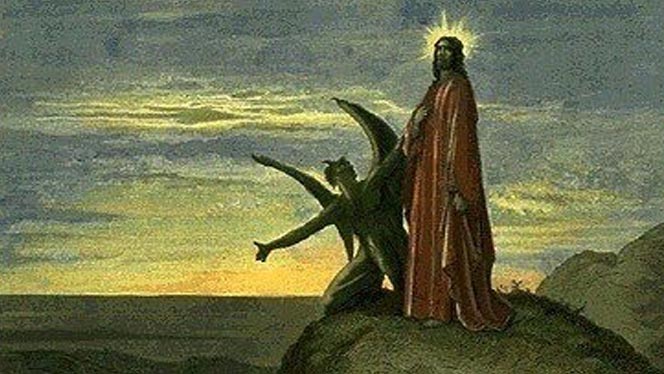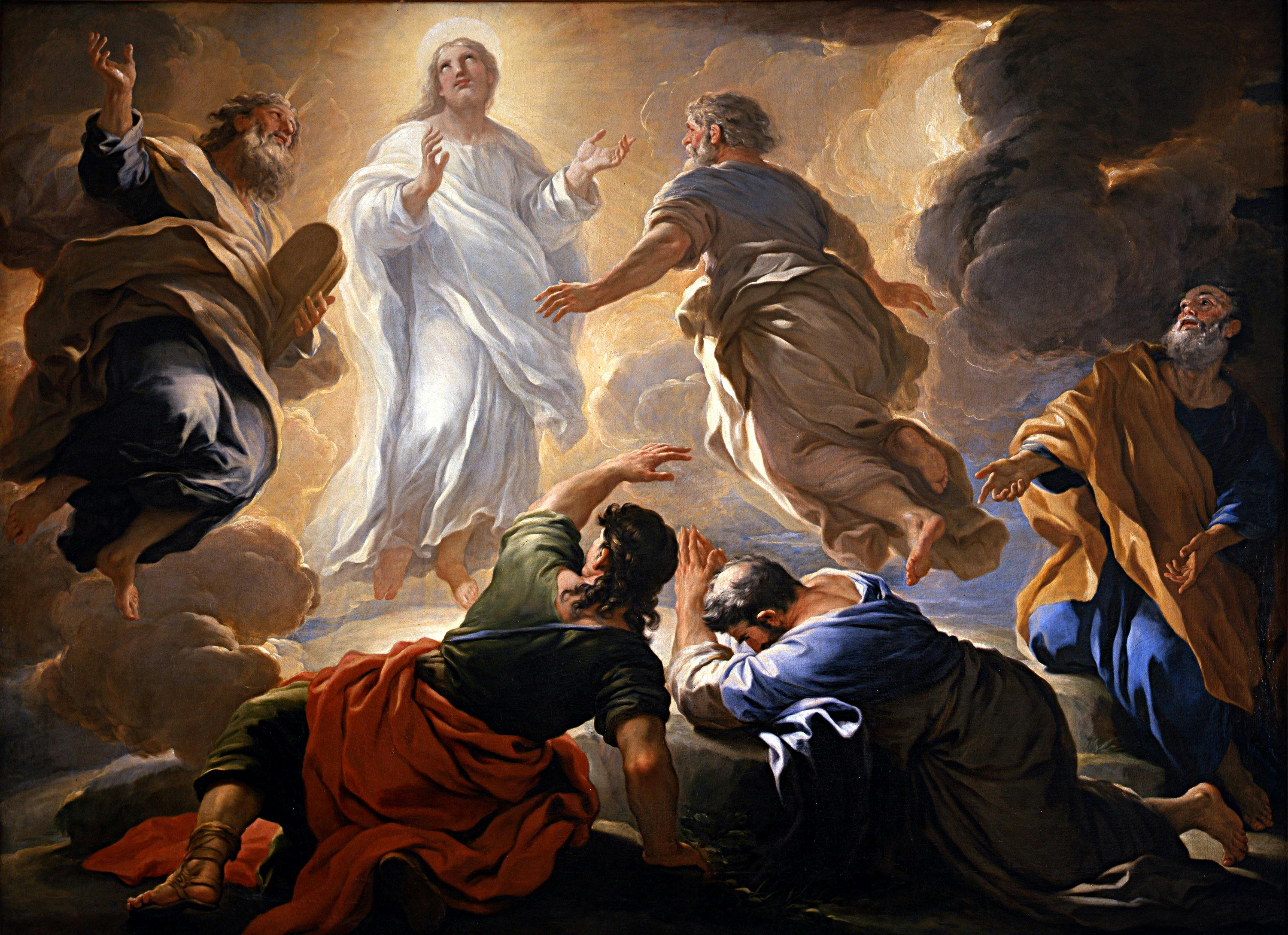+ 5th Sunday in Lent – April 6th, 2025 +
Series C: Isaiah 43:16-21; Philippians 3:8-14; Luke 20:9-20
Beautiful Savior Lutheran Church
Milton, WA

In the Name of the Father and of the Holy Spirit. Amen.
One of the things you learn when you travel is how different other places are in their cuisine, customs, and culture. Like the time Natasha and I accidentally offended a Canadian customs officer when we told her we weren’t sticking around Victoria for the Canada day fireworks (which we had only just learned about that moment!). No doubt you’ve experienced something similar in your travels.
Now you may not have realized it but whenever you open up the Scriptures you’re traveling across time – no, not in a Delorean or a time machine disguised as a police box – but we’re taken back to a culture that was (and for many parts of the world still is) very different from ours. Many countries in the West – like ours – tend to operate or think in the categories of guilt and innocence, individual rights, a longing for things to be made right, and so on.
But that’s not every culture tends to think in those categories. And that was certainly the case in Jesus’ day. It’s not that guilt and innocence were unimportant – they were and are – but some cultures, like the kind Jesus lives in and we read in the New Testament tend to think along the lines of honor and shame – where respect and reputation and relationships are valued and where disgrace, dishonor, and disrespect hurt not only an individual but the community.
Today’s parable in Luke 20 is a good example of the different ways cultures operate or the categories in which they think. A man planted a vineyard and let it out to tenants and then went away to another country for a good long while. When the time came to gather the fruit harvested by the tenants they beat the vineyard owner’s servants, sent them away empty-handed, treated them shamefully, wounded, and threw them out of the vineyard. Then comes the strange part – at least to our ears. The man decides… What shall I do? I will send my beloved son, perhaps they will respect him.
This is where we usually scratch our heads or do a face-palm. I mean, really. What did this guy expect? Those tenants are thugs. They’re guilty. We expect the vineyard owner to storm into that vineyard like John Wick or Chuck Norris. But instead he sends his beloved son. And here’s one of those cultural differences and why it helps understand what’s going on here.
This story is told by Biblical scholar, Ken Bailey, where, writing about the cultural ideals of Jesus’ day he tells a story from Jordan in the 1980s when the king of Jordan, Hussein bin Talal, had been trying to make peace. This was not popular with the generals in his army. So word came to him that seventy five of them were meeting at one of the army barracks in order to hold a coup, and take over the country. So, the king got into a helicopter, and had the pilot fly him over to the barracks. As he got out, he told the pilot that if he heard gunshots, to take off without him. He went down to where they were meeting, walked calmly in, and said something to the effect of, “If you carry out this coup, the country will be torn apart by civil war. Tens of thousands will die. There is no need. Here I am. Only one need die today.”
To be sure, all seventy five of them were guilty. All seventy five had brought shame upon their office. Yet by this one action, the king appealed to their sense of honor, and gave them an honorable way out of this. Every single one of them took it. They all rushed up to him, pledged him their loyalty, and served him faithfully for the rest of their days. This was the outcome King Hussein bin Talal expected. That’s why he went.
And that was the outcome the hearers of Jesus’ parables expected too. The tenants had acted shamefully. They had disgraced and dishonored the vineyard owner and themselves. But the vineyard owner showed just how honorable he was by giving them the opportunity to have their shame taken away. Receive the son. And the transgressions against the vineyard owner through his servants are all forgiven. The relationship and honor and joy would be restored.
But of course, that’s not how the parable goes is it. Not so much. But when the tenants saw him, they said to themselves, ‘This is the heir. Let us kill him, so that the inheritance may be ours.’ And they threw him out of the vineyard and killed him. Instead of honor, they choose violence and shame upon shame. Instead of being restored and at peace with the vineyard owner they reject him and his beloved son.
What then will the owner of the vineyard do to them? 16 He will come and destroy those tenants and give the vineyard to others.” When they heard this, they said, “Surely not!” May it not be. Let it not happen the crowds said. And yet it was happening. Jesus’ parable was playing out right in front of them. As Jesus spoke these words Israel’s religious leaders – the tenants of the Lord’s vineyard of Israel – were plotting murder and bringing shame upon shame. Jesus spoke these words during Holy Week…hours away from the time that he, the beloved Son of the Father, would be thrown out of the vineyard and killed. Crucified. Cast out. Rejected. Shamed.
But this, of course, is Jesus’ purpose in this parable. He’s telling us all what’s taking place. What is written? Jesus says. “‘The stone that the builders rejected has become the cornerstone’? Everyone who falls on that stone will be broken to pieces, and when it falls on anyone, it will crush him.”
In one shameful act upon another, the religious leaders Jesus is speaking about in this parable will crucify in the most shameful death imaginable…death on the cross. And yet it’s not their shame alone that puts Jesus on the cross. It’s Adam and Eve’s shame after they disobeyed God’s word and ate. It’s our shame. Yours. Mine. All of us together. It’s our shameful sin that rests on Jesus. It’s our rejection that he bears. It’s our disgrace and dishonor that he dies in.
And yet, that’s not the end of the story. The Stone rejected becomes the cornerstone. In Jesus’ rejection. In his shame and crucifixion and dying for you, there is your salvation. There is your glory. Where the Beloved Son, Jesus, is cast out of the vineyard and killed, there’s your honor and restoration.
Jesus is treated shamefully to cover your sin and shame. Jesus is rejected to restore you to a place of honor. Jesus is made to be the guilty one to declare you and cover you with his innocence. Jesus is broken so you are made new. Jesus goes to his death to bring you his life.
The author of Hebrews puts it this way: Jesus, the founder and perfecter of our faith, who for the joy that was set before him endured the cross, despising the shame, and is seated at the right hand of the throne of God.
But he’s not alone there. For the Beloved Son, Jesus, raises us up from the ash heap, out of sin and shame, to give us a seat of honor at his banqueting table. And the Lord of the vineyard pours out his sacred blood for wine and his body for the feast. A feast of joy and honor and forgiveness for you. Today, tomorrow, and forever.
In the Name of the Father and of the Holy Spirit. Amen.





